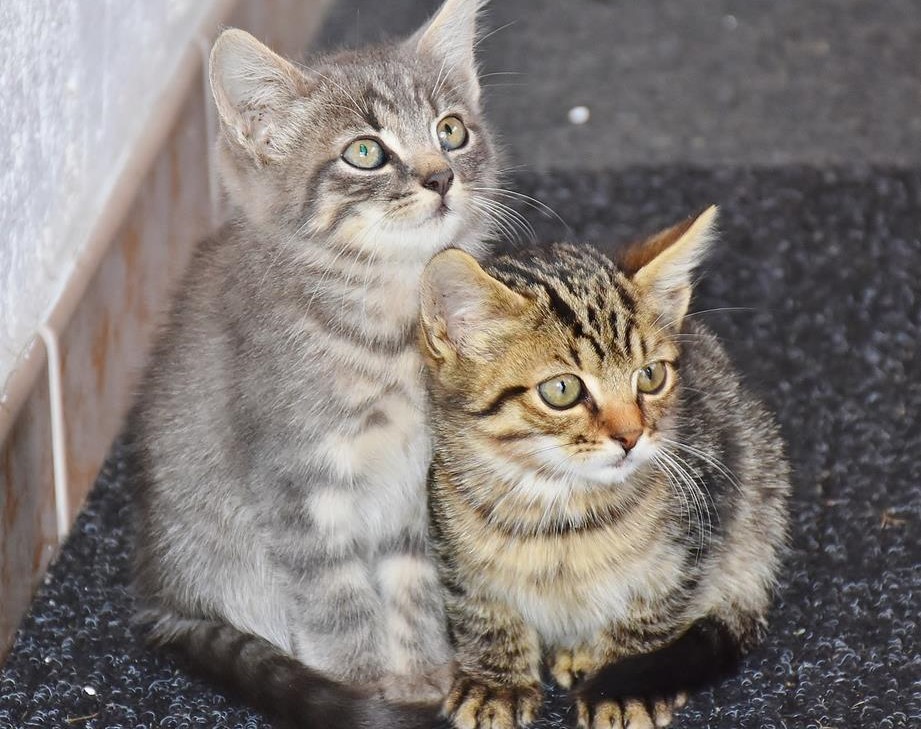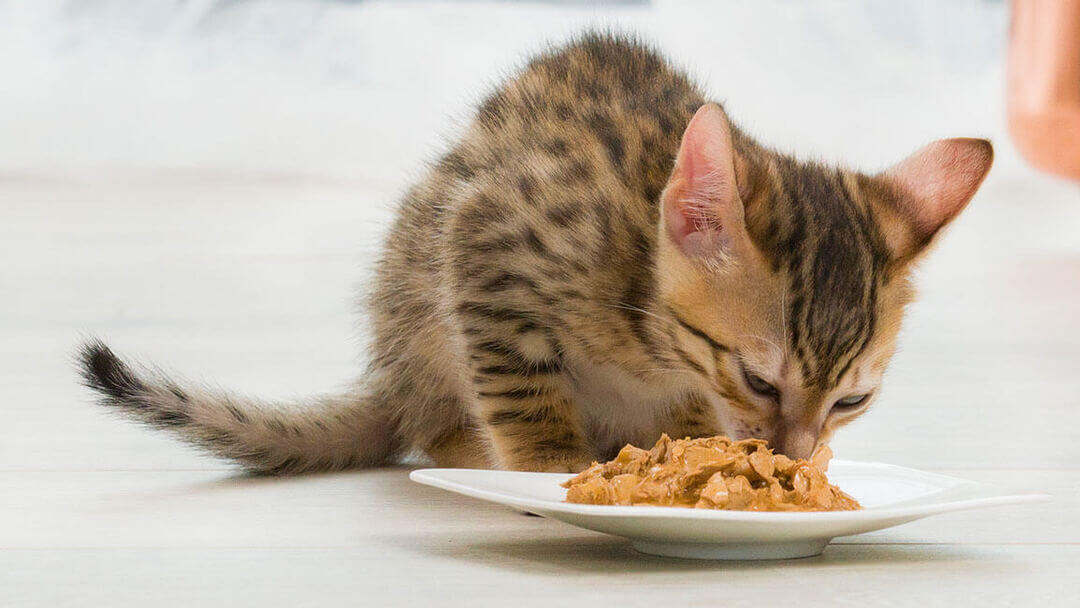Yes, cats do lose their baby teeth as they grow into adults.
As any cat owner will attest, the joy of having a feline companion comes with the responsibility of understanding and caring for their unique needs. One aspect of cat development that might be overlooked is the process of losing baby teeth. Just like humans, cats also go through a teething phase, and understanding this can help pet owners provide the best care for their furry friends.
The Teething Process in Cats:
Kittens, like human infants, are born with a set of deciduous (baby) teeth. These temporary teeth start to emerge within the first few weeks of a kitten’s life. The teething process usually begins around three weeks of age and continues until the kitten is around six or seven months old. During this time, kittens will begin to lose their baby teeth to make way for their permanent set.
The deciduous teeth include incisors, canines, and premolars. As the permanent teeth start to grow, they gradually push out the baby teeth, leading to the natural loss of the latter. The entire process is essential for a cat’s oral health, as the permanent teeth are designed to provide efficient biting and chewing as the cat matures.
Signs of Teething in Kittens:
-
Chewing and Gnawing: Teething kittens may exhibit increased chewing behavior. Providing appropriate chew toys can help alleviate discomfort and prevent them from nibbling on inappropriate items.
-
Gum Swelling: Swelling and redness in the gums are common signs of teething. Gently massaging the gums with a clean finger or providing a cool, soft object to chew on can offer relief.
-
Increased Drooling: Some kittens may experience increased drooling during the teething process. While mild drooling is normal, excessive drooling or persistent discomfort should be addressed by a veterinarian.
The Loss of Baby Teeth:
Around three months of age, kittens typically begin losing their baby teeth. This process continues until they are around six or seven months old, when the majority of the permanent teeth have erupted. During this period, owners may find tiny teeth around the house, or the cat may swallow them while eating.
It’s important to note that if a kitten retains some baby teeth beyond seven months, it may lead to dental issues. Retained deciduous teeth can cause misalignment, discomfort, and even problems with eating. In such cases, consulting with a veterinarian is recommended to determine if extraction is necessary.

Caring for a Teething Kitten:
When your kitten begins the teething process, it’s essential to provide proper care to ensure their comfort and promote healthy dental development. Here are some tips to help you care for a teething kitten:
-
Provide Appropriate Chew Toys:
- Kittens, like human babies, have a natural instinct to chew during the teething phase. Offering soft and safe chew toys can help soothe their gums and provide relief from discomfort.
- Choose toys that are specifically designed for kittens, ensuring they are free from small parts that could be swallowed or pose a choking hazard.
-
Regularly Monitor Gum Health:
- Keep a close eye on your kitten’s gums during the teething process. Look for signs of swelling, redness, or irritation.
- Gently massage your kitten’s gums with a clean finger to help alleviate discomfort. Be sure to use gentle pressure to avoid causing any additional irritation.
-
Avoid Inappropriate Items:
- Kittens may be tempted to chew on inappropriate items, such as electrical cords or household objects. Keep such items out of reach to prevent accidents and ensure the safety of your teething kitten.
- If your kitten shows a persistent interest in inappropriate items, redirect their attention to suitable chew toys.
-
Maintain a Balanced Diet:
- Ensure your kitten receives a well-balanced and nutritious diet that supports overall health, including dental development.
- Some commercial cat foods are formulated to promote dental health. Consult with your veterinarian to choose the most suitable diet for your kitten’s specific needs.
-
Regular Veterinary Check-ups:
- Schedule regular check-ups with your veterinarian to monitor your kitten’s dental development. Veterinarians can identify any issues early on and provide guidance on proper dental care.
- If your kitten retains baby teeth beyond the usual timeframe or if there are concerns about their dental health, seek professional advice promptly.
-
Be Mindful of Excessive Drooling:
- While mild drooling is normal during teething, excessive drooling may indicate discomfort or an underlying issue. If you notice persistent or unusual drooling, consult with your veterinarian for further evaluation.
-
Maintain a Calm Environment:
- Teething can be a challenging time for kittens, and they may become a bit more irritable. Create a calm and comfortable environment to help alleviate stress.
- Spend quality time with your kitten, providing reassurance and gentle interactions to help them feel secure during the teething process.
Caring for a teething kitten involves a combination of providing appropriate toys, monitoring their oral health, maintaining a balanced diet, and seeking veterinary guidance when needed. By being attentive to your kitten’s needs and taking proactive steps, you can contribute to their overall well-being and ensure a smooth transition from baby teeth to a healthy set of permanent teeth.

Credit: www.wellpets.com
Permanent Teeth: The Transition From Baby To Adult Teeth
Cats undergo a transition period from their baby teeth to permanent teeth. During this process, they lose their baby teeth, which are then replaced by adult teeth. The eruption of permanent teeth marks this important milestone in a cat’s dental development.
Various factors can influence the timing and process of this transition, such as the cat’s breed, genetics, and overall health. It is essential to provide proper dental care during this period to ensure healthy and strong teeth for the cat.
Regular check-ups with a veterinarian and a balanced diet can contribute to a smooth and successful transition. Understanding this process helps cat owners ensure their pets’ well-being and maintain their dental health throughout their lives.
Dental Health In Cats: Tips For Care And Prevention
Cats, like humans, go through the process of losing their baby teeth. Maintaining good dental health in cats is essential for their overall well-being. Implementing a dental care routine is crucial. This includes regular brushing of their teeth using cat-friendly toothpaste and toothbrush.
Signs of dental problems in cats may include bad breath, difficulty eating, and swollen gums. Prevention is key, so providing chew toys and dental treats can help keep their teeth clean. In case of dental issues, professional treatment options such as dental cleanings or extractions may be required.
Proper dental hygiene and regular vet check-ups are important in ensuring your cat’s dental health. Keeping these tips in mind will help you provide the best care for your beloved feline friend.
FAQ’s Of Do Cats Lose Their Baby Teeth
-
At what age do cats typically start losing their baby teeth?
- Cats usually begin losing their baby teeth around three months of age. The teething process continues until they are approximately six to seven months old.
-
How can I tell if my kitten is teething?
- Signs of teething in kittens include increased chewing behavior, swollen or red gums, and sometimes, excessive drooling. You may also find tiny baby teeth around the house.
-
Is it normal for cats to swallow their baby teeth?
- Yes, it is normal for cats to swallow their baby teeth while eating. The small size of the teeth makes them easily consumable, and it’s a common behavior during the teething process.
-
What should I do if my kitten retains some baby teeth beyond seven months?
- If your kitten retains baby teeth beyond seven months, it may lead to dental issues. Consult with your veterinarian, who may recommend extraction to prevent problems such as misalignment and discomfort.
-
Can teething cause discomfort for my kitten?
- Yes, teething can be uncomfortable for kittens. They may exhibit behaviors like increased chewing and gum irritation. Providing appropriate chew toys and monitoring their gums can help alleviate discomfort.
-
Are there specific chew toys recommended for teething kittens?
- Opt for soft and safe chew toys designed for kittens. Ensure they are free from small parts that could be swallowed or pose a choking hazard. Chew toys made of rubber or soft fabric can be suitable.
-
How can I promote good dental health in my kitten beyond the teething phase?
- To promote good dental health, provide a balanced diet that supports overall well-being. Consider incorporating dental treats or special cat foods designed to promote oral hygiene. Additionally, schedule regular veterinary check-ups for professional guidance on dental care.
Conclusion
To sum up, cats do indeed lose their baby teeth, just like humans do. This process usually starts when they are around three to four months old and continues until they are six months old. The shedding of baby teeth allows the adult teeth to come in, ensuring proper dental health and function.
It is important to monitor your cat’s oral health during this time, as retained baby teeth or misalignments can lead to dental problems in the future. Regular check-ups with a veterinarian and a balanced diet can help maintain your cat’s dental hygiene.
Remember to provide appropriate chew toys and engage in regular play to help facilitate the natural shedding process. By understanding the developmental milestones and taking care of their dental needs, you can ensure that your cat grows up with a healthy and confident smile.



